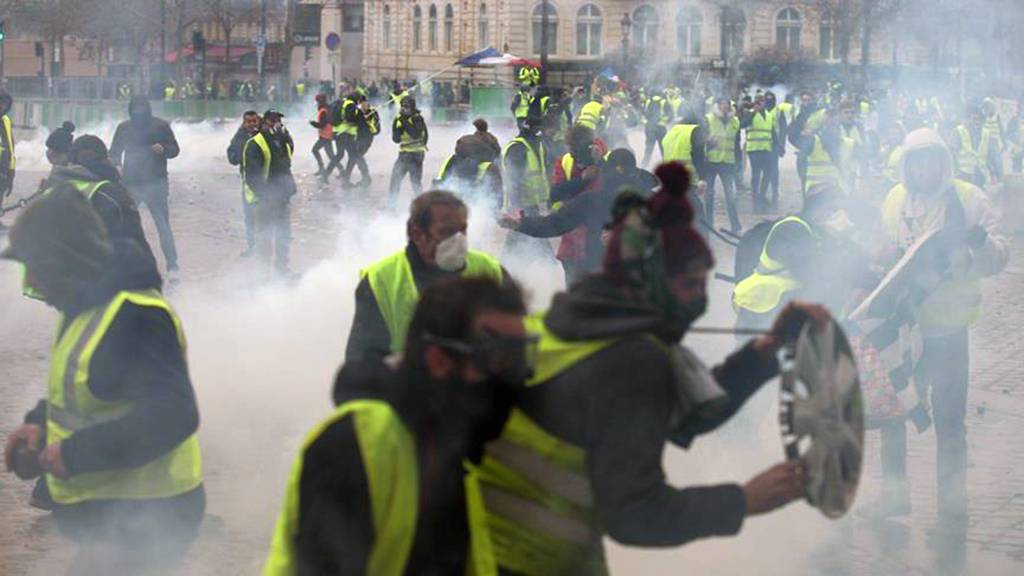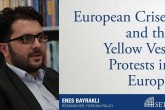eople in Western European countries have been on the streets for the last few months demanding something from their respective governments. At a first glance, it seems that it negative economic developments led the European people to take to the streets. Even though this is partly correct, if we look closely we will see that there is a deeper crisis in the continent. Economic problems are the only visible part of a much deeper problem inherent in most European states.
The European people are anxious and frightened about their future. They have lost trust in their governments. European values developed after World War II are now in crisis. The very foundations of the European continent were shaken and European politics have begun to lose ground. In other words, the crisis is not at a state level, but continental.
In this article, I will try to explain the threatening political tendencies in three heavyweight European states – namely the U.K., France and Germany. We need to look at the most recent political and social developments in these three countries in order to understand the political tendency in the continent.
It is not a coincidence that the domestic politics of these three heavyweights are in crisis since they lost the medium of what they used to represent. The continental balance in modern Europe is based on British rationality, French secular values and German economic might.
The U.K. traditionally represents the principle of rationality in Western Europe. However, they have been experiencing an ontological crisis on two different fronts. On the one hand, British domestic politics, the most successful representation of rationality, face a problem from ultra-nationalist demands inside, especially from Scotland. The political union on the island is being challenged. On the other hand, British society was divided into two after the Brexit referendum. While one side supports the decision made by the government, that is, to leave the European Union, the other side sees its future on unity with the EU.
France has represented the secular values of the European continent. As the most successful examples of political and territorial nationalism, France is therefore known as the best example of the modern nation-state, which eradicated all the attributes of its people, except citizenship.
The French state successfully homogenized its society based on the Parisian secular culture. However, with the rise of ultra-nationalism and with the decline of the socialist mindset, the traditional ground has begun to be shaken. The so-called Christian-minded and culturally oriented ultra-nationalist groups and political parties strongly oppose the EU, that is, the idea of the European unity, and blame “others” including refugees, Muslims and blacks for the wrongdoing in the state. Nowadays, the culturalist groups have started to challenge the basic principles of political and territorial nationalism. While they claim that they try to reestablish the uniformity of the state, these culturalist groups are shaking the foundation of the French state.
While Germany maintains its economic power, the German people began to question the use of German economic power for other European states and peoples. After many European countries started to experience economic crises, it was Germany that compensated the economies in the crisis. The rise of ultra-nationalists in Germany, similar to their counterparts in other countries, began to challenge the very idea of the EU, at a time when Germany was trying to undertake the hegemony of the institution. From now on, it will be more difficult for moderate German politicians to take on continental responsibilities.
In conclusion, the European countries have been experiencing ontological political, economic and social problems. European politicians have to work hard to bring back the lost trust in European politics. For this, the continent needs some strong leaders to lead the EU states. However, it seems that it will not be easy.
[Daily Sabah, 12 Aralık 2018]



